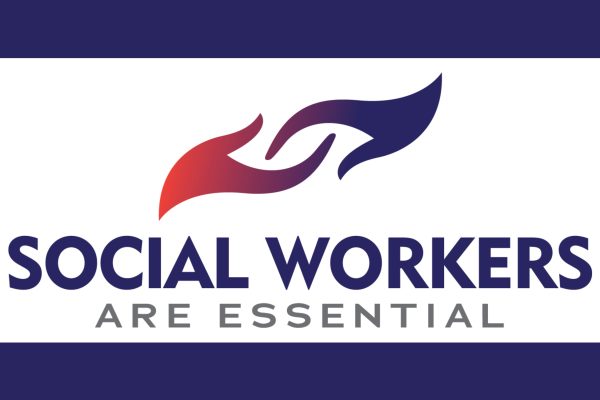Social Workers are Essential

The theme of Social Work Month 2021 is “Social Workers are Essential,” a message that resonates in describing professionals that sometimes work under the radar, but play a critical role in addressing the needs of people and communities. Social workers have faced difficult circumstances over the course of the global pandemic, but have risen to the challenge to meet the needs of those who depend on them to navigate life’s obstacles and opportunities. Frances Ferrante-Fusilli is a clinical assistant professor and the Field Placement Coordinator at the UNC Charlotte School of Social Work. She provided a closer look into the roles of social workers and reflected on the last year.
Why are social workers essential?
Social workers are essential because they help individuals, families and communities face a wide variety of challenges. Social workers have been significant during the pandemic in providing mental health services, linking people with social services and other resources, and supporting the needs of students in schools and patients in hospitals. We advocate for services and policy changes to meet the needs of our communities.
What are some misconceptions people may have about social workers and their role?
One of the most common misconceptions about social workers is that they are only present and working in child welfare. Social workers are found in many sectors of health and human services in addition to child welfare and social services. Social workers are one of the largest providers of mental health services in this country. There are social workers at various levels of government who can directly enact policy change. There are social workers who guide significant research studies that influence practice.
Another common misconception is that most social workers are not degreed and/or licensed in their field. To be a social worker, one has to have completed a social work degree. UNC Charlotte offers both a Bachelor of Social Work and Master of Social Work program. Graduates of social work programs complete a rigorous course of study in addition to hundreds of hours of practicum field experience.
How has the pandemic affected the role of social workers?
When the world was shutting down, social workers continued to provide services. Many social workers continued to provide face-to-face services, often having to be creative about where they met with their clients and being socially distant when possible. Social workers continued to advocate at the state and national level for services that impact individuals, families and communities.
What has been the UNC Charlotte School of Social Work’s approach to placing students in the field over the past year for their hands-on training?
We faced many challenges over the last year. The field office has had to remain flexible and open to the process and then be ready to change things from the original plan.
We have remained connected to our committed field agencies and field supervisors who understand the importance of training the next generation of social workers. These are the individuals and organizations who host our students and make field education possible. We knew that as long as we had students ready to learn and agencies willing to partner that we would be able to carry out our field education program. We have allowed students and agencies flexibility in how field hours are earned (virtually or in person) to ensure that students can meet social work competencies and the degree’s graduation requirements.
What are you feeling about the profession over the course of Social Work Month?
I always feel a great sense of pride in our profession. Over the last year we have continued to be strong advocates for addressing health disparities exacerbated by the pandemic. We have been vocal and active in opposing racism and social injustices. I am continually amazed at how many paths we can take in this field, and I am proud to be a part of a profession that is committed to systemic change.
Student Highlight

Maria Navarro, BSW student
Field Placement: Pat’s Place Child Advocacy Center
“My role as a social work intern during a pandemic has been varied. I was able to work in-person and virtually which really broadened my views on being more flexible when it comes to meeting the needs of the client. Before COVID, I would have never thought of therapy being provided through Zoom. My field placement is at Pat’s Place Child Advocacy Center, which is a non-profit organization that coordinates the investigation, treatment, and prosecution of the serious child abuse cases in Mecklenburg County. I have been able to shadow various disciplines and interact with various personnel from the North Carolina Department of Social Services and law enforcement. I am coming out of this internship filled with experiences and knowledge, prepared to positively impact different communities in need.”